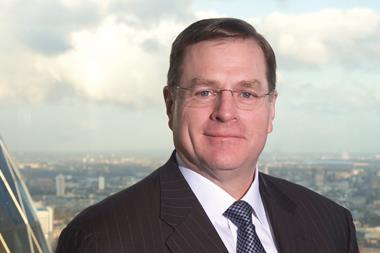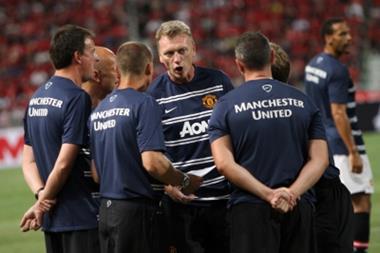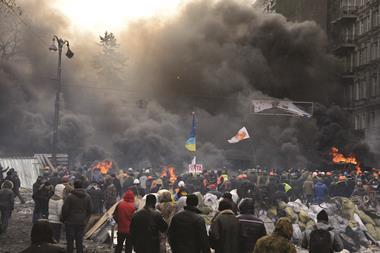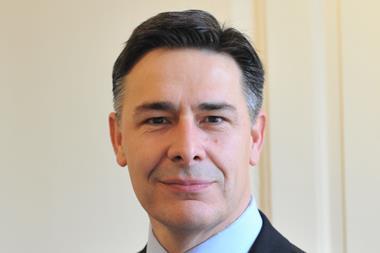When Sir Alex Ferguson retired from management and Chief Executive David Gill also stepped down from his post, Manchester United’s resilience both on and off the pitch faced a major challenge
While the risks faced by Manchester United are largely the same as those of any other major international company, as the world’s most famous sporting business, those concerns are often disproportionately more acute and their impact subjected to greater scrutiny.
Governance, finance, health and safety, reputation, environment, logistical and economic concerns all figure heavily in the club’s risk considerations.
But there is one particular risk which carries more significance than others: business continuity. This is arguably the single most important issue for Manchester United to manage with results on the pitch being reflected increasingly in commercial success.
The second it takes to score a goal on a Saturday afternoon can add or remove millions of pounds from the share value of the club, depending, of course, which net it goes into.
Since the inception of the Premier League in the 1992-1993 season, Manchester United has enjoyed a phenomenal and unparalleled period of football success with 13 league titles, four FA Cups and two Champions League trophies among the many lifted by the club.
This array of silverware was collected, of course, under the management of Sir Alex Ferguson, arguably the most successful manager in football history anywhere in the world – and, in many ways, an almost impossible act to follow.
But when Ferguson finally stepped down in May 2013 after 26 years at the helm, Manchester United found themselves facing the ultimate test of business continuity in finding a replacement who could continue to develop the club’s winning ways.
Ferguson bowed out after Manchester United had collected a record 20th league title, leaving the team at the pinnacle of domestic success as he moved into retirement.
Off the pitch, long-standing chief executive David Gill also stepped down, leaving Manchester United with a huge challenge to maintain stability and continuity on the commercial side as well to keep on getting results from the team.
Aon worked with Manchester United for some time to develop a suitable transition strategy, a tough task made only marginally easier by the fact that the idea of succession planning is ingrained into the club’s operational DNA as group managing director Richard Arnold explains.
“From a business risk point of view – there is a sense for anyone coming to Manchester United that it is very much an asset in trust to you,” he says.
“In terms of succession plans, I know all my predecessors. The people who were in my role going back 20 or 30 years, they are still connected with the club, you still see them around. There is very much a sense that you know you are going to pass this job on to someone else and you want to leave Manchester United in better shape than it was given to you and everybody has that sense of responsibility.
“And that’s very important culturally, but it also goes to the key part of our business risk which is ongoing continuity and making sure that our plans are in place so that whatever happens we are well set – be that capital, in the work that was done to make our IPO [initial public offering] well underwritten, be that work done on the risks associated with hosting 80,000 people at high-profile venues around the world, the risk associated with players, these are young guys, very well known, wealthy, high profile, everybody knows where they are on a Saturday afternoon so there is a lot of risk that comes with making sure that our assets are well maintained, not just in terms of the work done to measure performance but also outside, the framework for protecting them and making sure that they are well looked after.”
Arnold outlines the important role Aon – and its president and chief executive Greg Case in particular – has played in ensuring an effective transition of the key personnel who left the club last year.
“With Sir Alex [Ferguson] changing we were very lucky that we were able to chat with Greg and his team and to ask them which elements of the plans needed consideration – because with Sir Alex as the figurehead it was very important that we got it right,” Arnold says. “We had the luxury of having a long time to think about it with him having such a long tenure and then having a dress rehearsal as it were a few years ago when he first thought about retirement and that meant that we had a good succession plan and a blueprint laid out.”
Similar discussions were also held with Aon regarding the departure of Gill.
“That was one where we took a lot of advice because a year after becoming an IPO to have a change involving the chief executive is very major,” says Arnold. “We went through that in a lot of detail about how succession worked, the communication both externally and internally. Greg has somewhat lived through this with myself and our vice-chairman Ed Woodward, coming through and developing our roles and the succession which went with that and also the team beneath us. This is an area where we had extensive discussions in terms of making sure that went through smoothly.”
Case recognises that this enormous transition has been a real challenge in terms of continuity.
“If you think about how much change Manchester United has undergone over the past year, it is quite extraordinary,” he says. “Consider it from a business standpoint – a new chief executive, a new group director, the transition of someone who has been an icon at the club for many years and an IPO. For us, when you think about risk in the context of Manchester United, really it is about how they stay ahead in the changing risk world – and this is Aon’s mission too: how do we innovate faster to deal with the new risks that are coming up, that are out there?”
While Ferguson and Gill were the most high-profile names to leave their roles at the club, Manchester United employs hundreds of other personnel whose lives within the company need planning also.
“We are 136 years old as a business … some of our employees have been here 45-50 years,” says Arnold. “We have had help with our retirement work and planning that has led to us becoming the first sports club to win the highest accolade for our pension scheme.”
Recognising and developing talent within the organisation is another crucial area in which Aon works with Manchester United, as Anthony Lawlor, the club’s head of HR explains.
“We do have a leadership programme – we have a detailed catalogue of learning and development that not only focuses on the legal training but also skills development and within that we also have a number of leadership and management modules,” he says.
“We are actually moving to credit those training programmes and we are seeking to develop with Aon a process that recognises and credits the training that we deliver at the moment. We are currently at an early stage in that process.”
Lawlor says people are being promoted constantly through the business. “This is all about knowing who the good people are and identifying where their strengths lie,” he says.
Succession planning is also important in terms of bringing through new players. While Manchester United are active in the transfer market, trading players with other clubs, there is a long and healthy tradition of bringing their own youngsters through the ranks.
“In every squad that has had Manchester United’s name since 1937 we have had home-grown players,” says Arnold. “That is something we believe in very strongly. It starts with local youngsters as young as seven or eight who we are working with or coaching in the community, right the way through to the first team and some of the most famous players in the world who we have brought through our academy. This is very important in terms of the work we have been doing regarding talent, succession planning.”
This can be seen clearly in the management tenure of Ferguson who, during his 26 years in charge nurtured and created three distinct groups of players each considered to constitute a “great” and therefore successful team.
However, while Manchester United are famous for their trophy successes, their defining moment came not on a pitch but in a terrible air crash in Munich in 1958 which almost destroyed the club.
Eight Manchester United players, part of the famous Busby Babes team, were among 23 people, including club officials and journalists, who died when the aircraft that was bringing them back from a European Cup match in Belgrade came down in Germany.
In the wake of the tragedy the club showed remarkable courage and resilience in continuing to play matches and, over time, a new team formed under manager Sir Matt Busby who was himself badly injured in the crash.
Those who died have never been forgotten by the club or its fans and to this day the disaster continues to shape the outlook and attitude of Manchester United.
Dealing with the most dreadful adversity is something which Aon has in common with Manchester United, the broker lost 176 personnel in the 2001 World Trade Center attacks.
There is no doubt though that through these events both Manchester United and Aon have a shared understanding of what is truly important in life – and it is not goals and balance sheets.
That Manchester United would perhaps struggle in some matches since the departure of Ferguson was perhaps inevitable and it would have been unreasonable to have expected anything else.
Nonetheless, there is pressure building from both fans and investors for his successor Moyes to get results on the pitch, particularly after a string of defeats and relatively poor performances ruled out almost any realistic opportunity for silverware this season before even the end of January.
Manchester United have shown faith in their new manager by appointing him on a long-term contract.
Both the club and Aon know that change does not always bring instant results and that assured long-term success requires careful planning.




















No comments yet